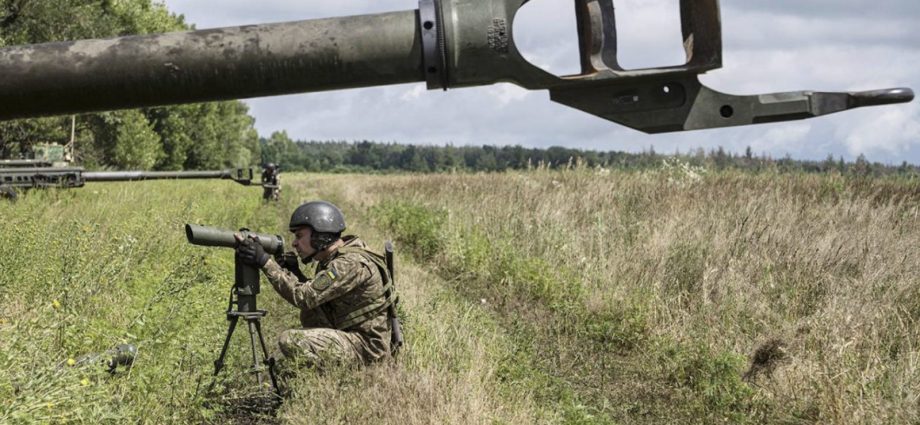The German decision to ask for more time to decide whether to supply Ukraine with Leopard tanks may actually have no teeth.
After consultations and protracted pondering, Berlin could eventually decide to deliver the weapons. They are necessary to strike hard against the Russians in Kiev’s long-announced spring offensive.
It is not just about foreign pressure, but about finding a new destiny for Germany, a country that for over 30 years bet on a new relationship with Russia and China, which is now falling apart.
Germany, in fact, after the protracted decline of the Holy Roman Germanic Empire in the 17th and 18th centuries, recentered around two poles – Austria and Prussia. They were the driving forces that eventually built the modern nation.
Both looked to Western Europe (France, Spain and Italy) to shape up, but their dynamism originally came from outside the borders of the empire: Hungary for Austria and Pomerania for Prussia. When each lost these seminal territories, Pomerania and the eastern part of Hungary, they also lost their stamina.
Immanuel Kant, the philosophical dreadnought of modernity and father of German logic, thought while strolling in Königsberg, now Kaliningrad, a Russian enclave between Poland and Latvia.
Eighteenth-century Königsberg felt the winds from Warsaw, owed its life to the Baltic Sea and shone its light onto the western horizon. But it was also a border town on the limits of the eastern Russian world.
At the end of the Ukrainian war, whatever the result, Russia will be out of Europe. If it wins, a new iron curtain will exclude it from the rest of the continent for decades, as when the Golden Horde ruled Moscow. If it loses, a political rollercoaster could take it astray for years.

In either case, a new area of significant political influence will be born in Europe, from the Baltics to the Black Sea, going through Poland, Ukraine, Romania and Bulgaria.
Germany and Hungary, bordering this area, need to reconcile with it and no longer think of skipping it by reaching out directly to Russia or China. Berlin may want to return to its 17th-century roots, restarting from what was the Lithuanian-Polish commonwealth and what could now become the driver of EU growth.
The path of the new relationship will march in lockstep with the grinding of the Leopards’ tracks.
A Russian-invented trap
Still, people in Germany and elsewhere argue the war is no longer just between Ukraine and Russia. If tanks are delivered to Kiev, it will be a war between NATO and Russia – and NATO could lose it.
The argument is not new. In fact, Moscow first wrote the book on it during the Vietnam War in the 1950s and 1960s. France and America then didn’t simply fight Viet Cong but all of Soviet power. A decade later, the US turned the tables on the USSR in Afghanistan: The Mujahideen defeated the USSR thanks to US weapons and tactics.
The fact that the US survived the political defeat in Vietnam but the USSR didn’t in Afghanistan is possibly due to two elements.
Democracies can be more resilient than dictatorships and Washington withdrew before it was too late by accepting humiliation but choosing survival. Moscow couldn’t; it chose retreat only when it was too late.
Plus, America’s experience of protracted and wasteful involvement in Iraq and Afghanistan from 2004 until 2021 suggests that large powers should avoid direct involvement in small wars unless they have clear political goals and well-defined plans for how to achieve them.
Apparently, Russian President Vladimir Putin forgot all about the Soviet victory in Vietnam and failure in Afghanistan when he moved into Ukraine.
His concentration of power worked against him because he should have immediately sought a retreat after his useless military build-up on the Ukrainian borders or when he was crushed during the first days of the war.
But fearing a loss of power, he insisted on moving ahead, thus digging an ever-deeper hole for himself and his country.
A North Korean trap?
Yet, this is not the end of the game. America could still be lured into an unwinnable war with dire consequences. It may not be in Europe, but in Asia.
If North Korea were to move against South Korea, US troops stationed in the south would be drawn in. Win or lose, a war there could sink the South Korean economy, thrash Japan and rapidly escalate into a nuclear confrontation as Pyongyang is stockpiling missiles and atomic warheads.
According to Western strategists, Pyongyang could be prodded to move against Seoul by Moscow or Beijing, seeking to open a new front and diverting Western attention without their direct involvement. Arms supplies now reaching Russia from North Korea could be a first step.

Pyongyang would then be the modern Viet Cong or Mujahideen fighting a vastly superior enemy and humiliating it in any case. North Korea is far more “disposable” – which is clear even by the choices of its rulers, who are ever dismissive of the well-being of its people – than Russia or China in a war and thus it could be more likely to trigger a nuclear war.
Nuclear war on the Korean peninsula would have the advantage of fighting the Americans directly without involving Chinese troops directly, as in many other war scenarios in Asia. Chinese troops would be directly involved with India, Taiwan and Vietnam, but US forces wouldn’t.
It is possible that the longer the war in Ukraine goes on, the more likely this scenario could be. Therefore, Western Europe, looking to Germany for political guidance, may want to end the Ukrainian war soon, before it escalates on the other end of the Eurasian continent with unfathomable consequences.
Or maybe not. Berlin could be too confused and flustered and drag decisions out until it’s too late for anybody.
This essay first appeared on Settimana News and is republished with permission. The original article can be read here.

